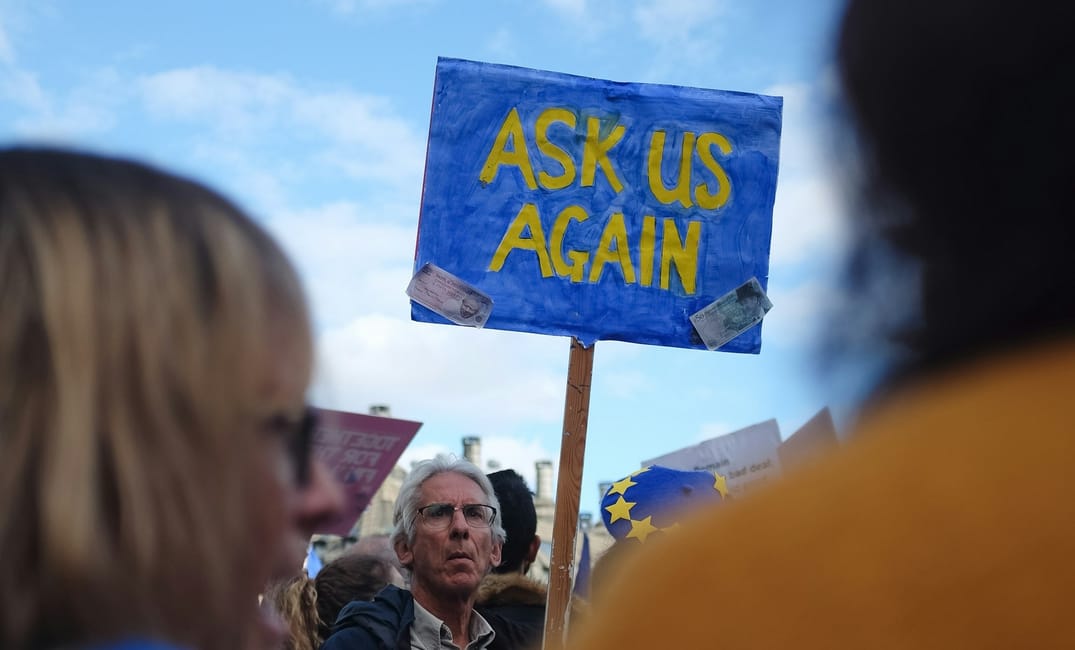Labeeda Ahmed
Naked Politics Blogger
One word. Six letters. Never ending coverage on just about every news channel imaginable. Everyone’s talking about it, though it’s clear not everyone is a fan. You guessed it, we’re on about Brexit.
Thursday 23rd June 2016. Ah, the joy. Well, not exactly. Some of you may be so impatient to leave because you think the UK will take its first breaths of freedom in the name of democracy. But, the question is, how sure can we be that the UK will retain total power and sovereignty after Brexit, when it has spent 45 years conceding power out of its own choice? Wouldn’t you say we’re so used to this idea of sharing power, that when we do (if we do) get this power, what on earth will we do with it? Rather, how will we manage it?
To the joy of the 48%, who voted “remain”, it looks totally likely that in all the efforts of Britain to reach an agreement to accommodate everyone’s needs, the opposite will be the case. Talks of a “no-deal Brexit” seem possible, making us doubt Britain’s ability to negotiate with the EU, and a lack of confidence in the government.
Doesn’t a no-deal imply that no one is keen on leaving? I mean, if it ain’t broke, why fix it? Granted, the UK has given power away to the EU, but so has every other member state, and what does it receive in return? Security, free trade, peace. Was it really so bad?
I’m not alone in saying we won’t do what 52% of the country voted for. Charlie Mullins, head of London’s top plumbing company is adamant that Brexit will be a no-show “because the British people aren’t that stupid anymore.” People voted in ignorance of the consequences; only after they voted did they come to know about the ground-breaking effects of their actions. Mullins reckons that no one “is prepared to put up with what we’re being told lies ahead of us”; right now, it could well be a second referendum. Isn’t the protest of 700,000 in London amidst a potential second referendum (basically a vote to validate the decision of the first or reverse it) enough of a hint that things may have gone wrong the first time?
Brexit has received a lot of backlash and considering the growing possibility of another referendum (bearing in mind referendums are a rare occurrence) chances of us actually leaving are slim. Is the second referendum the government’s way of giving us a second chance to rethink our decision, or is it highlighting the ingrained divisions within Theresa May’s government? Matters don’t seem to be improving, with the PM introducing her Brexit deal to MPs to vote on, only to receive the reaction that either, she didn’t quite expect, or she was actually well aware of the potential backlash it could face, but realised it was the best she could make of the situation.
According to The Telegraph, May claimed that Brexit should “make us think of global Britain”, a Britain that is able to “look beyond the continent of Europe and to the economic and diplomatic opportunities of the wider world.” According to CNN, various world leaders didn’t agree so much, calling the Brexit summit a “sad day”; German chancellor Angela Merkel labelled the situation as “tragic”.
The Prime Minister’s agreement, taking up more than 585 pages, will not be legally binding as of yet, though many would consider the signing by Brussels of the agreement a victory in itself, considering the process has been so strained from the very minute Brexit was a thing. Yet, when one thinks of the uncertain journey ahead involving Parliament and whether they will consent to it, stress levels reach a peak once again. Labour leader, Jeremy Corbyn called the deal the “worst of all worlds”, despite May’s reassurance that it is in the national interest.
The chances of a second referendum are seriously increasing. In Mullin’s words, “we now know the facts.” Let’s see what we do with them.

